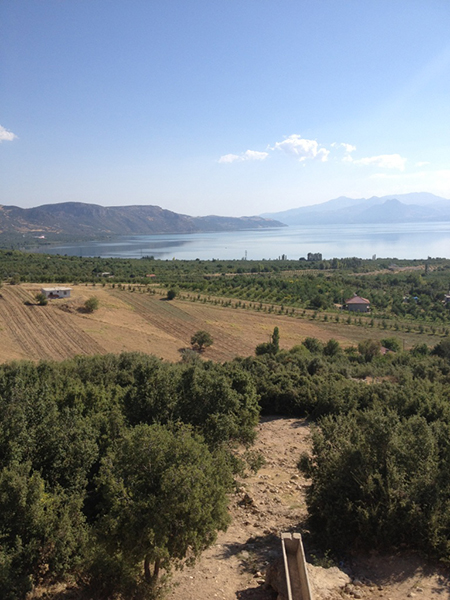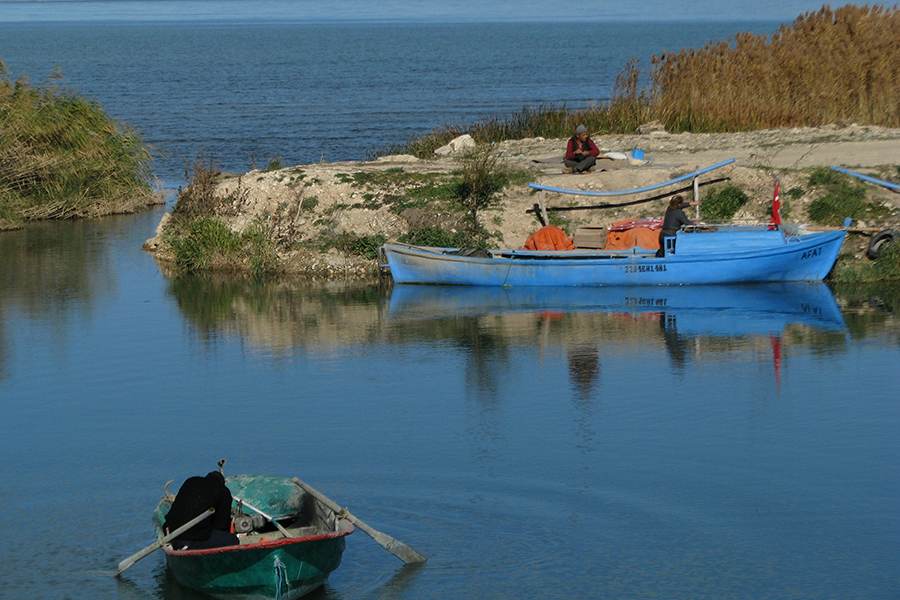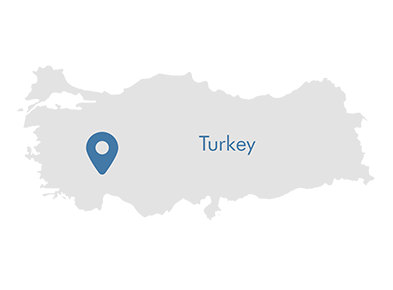TURKEY, EUROPE
Lake Eğirdir
Lake Eğirdir is a wetland of international importance due to its distinctions as a drinking water reservoir, a nature reserve and an important bird area. It is the second largest freshwater lake in Turkey with an area of approximately 482 km². The lake's ecosystem is characterized by its biological diversity, providing a habitat for various species of fish, including carp, perch and eel. The surrounding wetlands and marshes add to the overall richness, providing a haven for numerous species of birds. Flanked by mountains and surrounded by fertile land, Lake Eğirdir is a natural sanctuary and a source of livelihood for local communities engaged in fishing and agriculture.
What makes it special
Lake Eğirdir is also known as the "Seven Colored Lake" due to its daily and seasonal variations in color.
Protection status
· Important Bird Area

Biodiversity
Lake Eğirdir has been given the status of an Important Bird Area due to the large number of different bird species such as Pygmy Cormorant, Red-crested Pochard, Common Pochard, Tufted Duck and Eurasian Coot that spend the winter at the lake. The reed cat and the Eurasian otter are other important species in the area. The area, which has “Important Plant Area” status, contains 127 taxa endemic to Turkey and 27 endangered taxa

Local Communities
Lake Eğirdir has historical and cultural significance, with traces of ancient civilizations found in the nearby towns and archaeological sites. The town of Eğirdir itself boasts a historic castle on a peninsula jutting out into the lake, offering panoramic views of the surrounding area. The lake and its surroundings provide a tranquil setting that reflects the interplay between nature and human.
Threats
A change in water quality indicators has been observed, addressing pollution caused by agricultural, domestic and industrial use. According to recent scientific studies, there has been an increase in biomass (a sign of eutrophication) and a decrease in plankton and fish stocks.
Concentrations of heavy metals have also increased. Agricultural pollution and a serious threat to the lake. In particular, the use of unnecessary pesticides and artificial fertilisers. These are often applied at the wrong time and in the wrong amounts.

Our Work
The Nature Research Society is dedicated to the preservation, enhancement and conservation of Turkey’s wildlife and habitats. To fulfil this mission, the Society conducts research and monitoring and shares findings with the public. It also plays an important role in raising awareness of conservation issues through public opinion surveys, educational initiatives and capacity building activities. The Society takes a proactive approach by preparing action plans for priority species and developing management plans for key habitats, actively contributing to and supporting these processes. In addition, the Society is committed to supporting the development of national conservation policies, strengthening legal frameworks and monitoring conservation practices at the national level.

Co-funded by the European Union. Views and opinions expressed are however those of the author(s) only and do not necessarily reflect those of the European Union or CINEA. Neither the European Union nor the granting authority can be held responsible for them.


